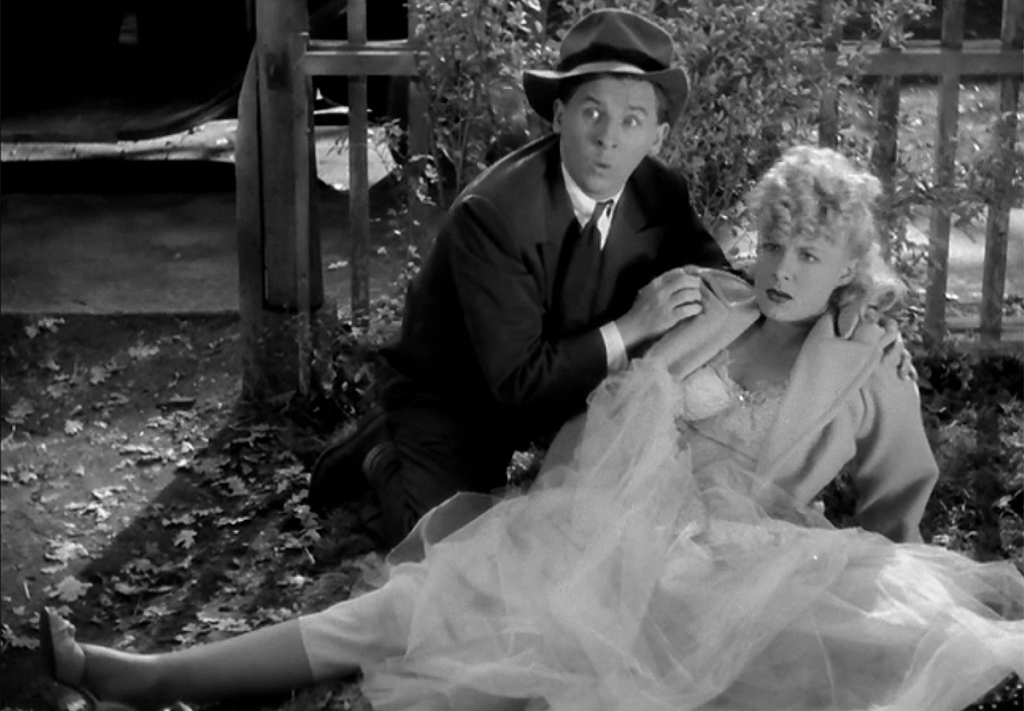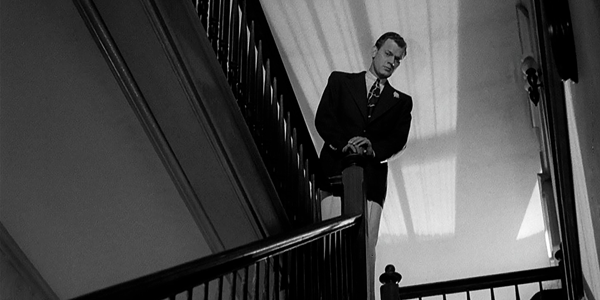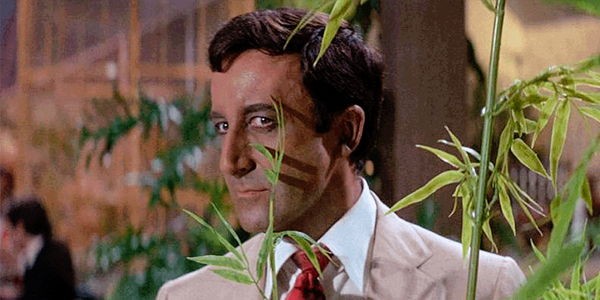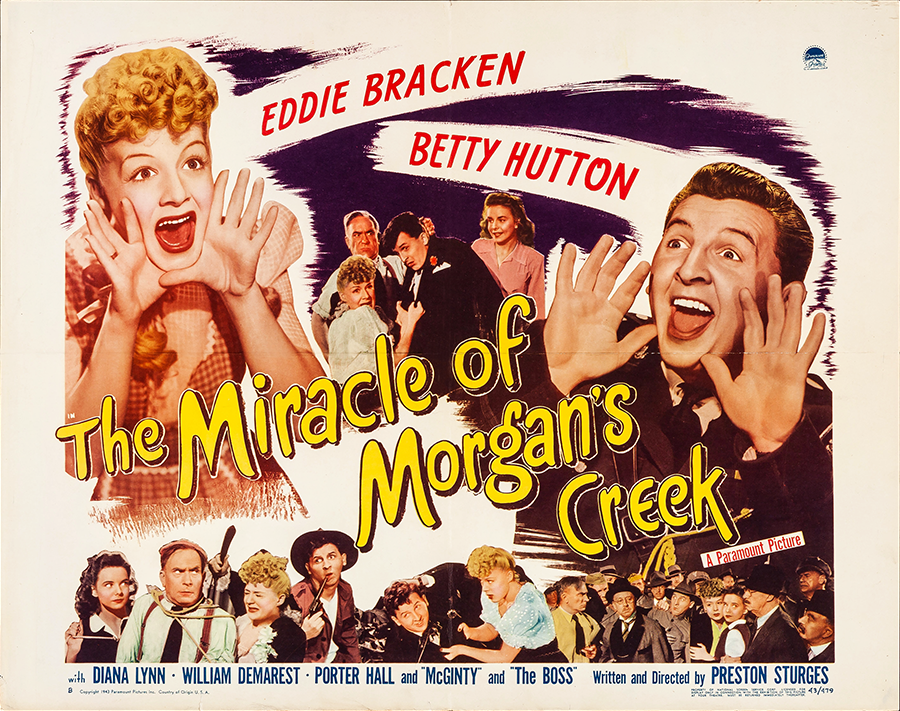
review | The Miracle of Morgan’s Creek
The big hit of 1944 and maybe Preston Sturges’ best film, this manic romp still delivers, despite an uneven transfer
by Michael Gaughn
August 2, 2022
Reviewing The Miracle of Morgan’s Creek, James Agee famously concluded that the Hays Office, responsible for policing film content, had ”been raped in its sleep.” And It’s kind of easy to see why, since the film is about a super horny juvenile who uses wartime hyper patriotism as a cover to bed down with GIs departing for the front, resulting in her committing bigamy (among other things) and having not one but six illegitimate children. On Christmas Day.
Pretty racy for 1944, but that didn’t seem to deter anyone from going to see the Preston Sturges comedy, which ended up being the biggest hit of the year. They might have been deterred if they’d been given a chance to pay attention to what was actually going on, but Sturges keeps the action so manic and cartoonish that contemporary audiences treated the quieter moments, where the plot comes to the foreground for consideration, as little more than badly needed breaks from all the mayhem.
If you know Sturges at all, you probably know all of the above, and if you don’t, you have no idea what I’m talking about. Preston Sturges was yet another bratty rich kid who got to show up in Hollywood and walk pretty much straight into making pictures—like the CEO’s kid who starts in the mailroom and rapidly works his way up to the top. Like he was destined to land anywhere but there. (To be fair, Hollywood was slightly more democratic before the 1980s, and someone born elsewhere than within the upper crust occasionally got to make a movie, unlike the complete stranglehold the wealthy have on the creative end—and every other aspect—of filmmaking today.)
There was always something a bit precious about Sturges—which was OK as long as he held it in check, but helps explain why I’ve never been head over heels about either Sullivan’s Travels or The Lady Eve, which many consider the pinnacle of his work. I find more to savor in Hail the Conquering Hero and Unfaithfully Yours, and even have a soft spot for the tissue-thin Christmas in July. But Morgan’s Creek might be his most satisfying effort because he tries to do as much as possible while trying to make it look like the film is about nothing at all. And it displays—even though it might all be a pose—a disarming humility.
Yes, everyone in the town of Morgan’s Creek is a bit of a dope—and ill-mannered and, often, duplicitous and grasping, and sometimes just flat-out mean. But you can tell that Sturges kind of envies their intimate connections, their elaborate interwovenness. And he expresses that early on through a four-minute long-take tracking shot as Eddie Bracken and Betty Hutton stroll from Hutton’s house, through the neighborhood, and into the heart of town. It’s artificial as hell, but it makes you buy into the film because it’s in real-time, and everyone at that time knew it was true to those towns and how people lived in those towns. Without it, none of what’s to come would make sense or would land as strongly as it does. And maybe the biggest miracle of all is that the somewhat aloof and very privileged Sturges could even get onto that more mundane and frowsy wavelength and portray it all so well.
Eddie Bracken is the kind of actor who emerges because the movies temporarily need a certain type—here, an out-and-out schlub—which it then tosses aside when the fad has passed, so it would be easy to write him off as a one-trick wonder. But his performance is mesmerizing, flawlessly timed and turning schtick that would sink lesser comedians into something so telling it’s poetic. It would be similarly easy to dismiss William Demarest, who was typecast—even in Sturges films—as a perpetually dyspeptic grouse. But he transcends that here to play someone who, despite all his bluster, clearly cares about his daughters and his town and, ultimately, Bracken’s Norval.
Maybe the greatest irony of Morgan’s Creek is that this whole raging avalanche of a movie turns out to be nothing but a 90-minute setup so Demarest can do a perfectly timed pratfall in a hospital corridor. And, indulgent as that sounds, it’s worth it.
Morgan’s Creek was shot by master cinematographer John Seitz, best known for single-handedly defining the film noir genre with Double Indemnity. The rule has always been that you never want a comedy to look too pretty or too moody, but, while Seitz never goes overboard, he doesn’t shy away from making his frames nuanced and expressive, in a comic-elegant way. Creek looks passably good on Amazon Prime—as in, you wouldn’t turn it off if you watched on a home cinema-sized screen, but you’d always be wanting more. But the wraparound scenes—the first three and a half minutes and some shots near the end—are curiously flat and washed out.
This film is really just a succession of master shots and long takes, which really allows the comedy to thrive. But while Sturges rises to that self-imposed challenge masterfully, he does indulge in maybe two too many of them—and in too many big physical gags, when it’s inevitably the smaller bits of business that play better—which can make Morgan’s Creek seem a little grating at around the 2/3s mark. But hang in there—it all ultimately pays off. The movie still works on its own terms, and time has leant it some little touches—like finding out the Kockenlockers live in the same house as The Girl from Lover’s Lane, and encountering a newspaper headline that screams “Hitler Demands Recount”—that provide a kind of gruesome pleasure in retrospect.
Little fades faster than comedy—except maybe fantasy. The best silent comedies hold up surprisingly well, especially the shorts, maybe because they’re so abstract and don’t rely much on the world of the time for their effect. And the best of the screwballs remain resilient—most of Sturges’ output and Hawks’ Bringing Up Baby and His Girl Friday in particular. Go much outside of that and you’re talking the very definition of the ephemeral. So it’s more than worth it to seek out and plumb the best ones, and it’s hard not to be in awe that they even exist at all.
Michael Gaughn—The Absolute Sound, The Perfect Vision, Wideband, Stereo Review, Sound & Vision, The Rayva Roundtable, marketing, product design, some theater designs, a couple TV shows, some commercials, and now this.
© 2025 Cineluxe LLC






